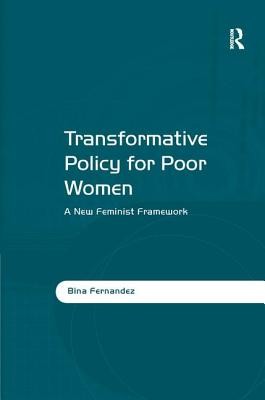
- We will send in 10–14 business days.
- Author: Bina Fernandez
- Publisher: Routledge
- ISBN-10: 1409405079
- ISBN-13: 9781409405078
- Format: 15.6 x 23.4 x 1.3 cm, hardcover
- Language: English
- SAVE -10% with code: EXTRA
Reviews
Description
What accounts for the oft-noted 'gap' between well-designed policies for women and their inadequate implementation? Why do such policies often fail to benefit the poorest women? How do policies address the intersecting inequalities of gender, class, caste, ethnic identity and race? What are the conditions under which policy may have transformative potential for poor women? This book answers these questions and many more. Presenting a new feminist framework for policy analysis that can account for policy failures, Bina Fernandez argues that these failures are often predictable and that it is necessary to unpack the actual policy practices within the policy-implementation gap. Recognising that policy is a multiply layered, contingent and politically contested discursive process, the author proposes the analysis of policy through four analytical categories: Constitutive Contexts, Representations, Practices and Consequences. Within each of these four categories, gender, class and ethnic identity are central axes of analysis. The framework is given substance through an empirical case-study of an anti-poverty policy in India, yet the wider relevance of the framework is validated through a discussion of parallels in the policy contexts of other developing countries. Transformative Policy for Poor Women provides an important and required framework to understand the gap between policy pronouncement and its praxis on the ground. These features make this book an important read for both scholars and practitioners seeking to understand policy in developing country contexts.'
EXTRA 10 % discount with code: EXTRA
The promotion ends in 17d.00:04:25
The discount code is valid when purchasing from 10 €. Discounts do not stack.
- Author: Bina Fernandez
- Publisher: Routledge
- ISBN-10: 1409405079
- ISBN-13: 9781409405078
- Format: 15.6 x 23.4 x 1.3 cm, hardcover
- Language: English English
What accounts for the oft-noted 'gap' between well-designed policies for women and their inadequate implementation? Why do such policies often fail to benefit the poorest women? How do policies address the intersecting inequalities of gender, class, caste, ethnic identity and race? What are the conditions under which policy may have transformative potential for poor women? This book answers these questions and many more. Presenting a new feminist framework for policy analysis that can account for policy failures, Bina Fernandez argues that these failures are often predictable and that it is necessary to unpack the actual policy practices within the policy-implementation gap. Recognising that policy is a multiply layered, contingent and politically contested discursive process, the author proposes the analysis of policy through four analytical categories: Constitutive Contexts, Representations, Practices and Consequences. Within each of these four categories, gender, class and ethnic identity are central axes of analysis. The framework is given substance through an empirical case-study of an anti-poverty policy in India, yet the wider relevance of the framework is validated through a discussion of parallels in the policy contexts of other developing countries. Transformative Policy for Poor Women provides an important and required framework to understand the gap between policy pronouncement and its praxis on the ground. These features make this book an important read for both scholars and practitioners seeking to understand policy in developing country contexts.'


Reviews